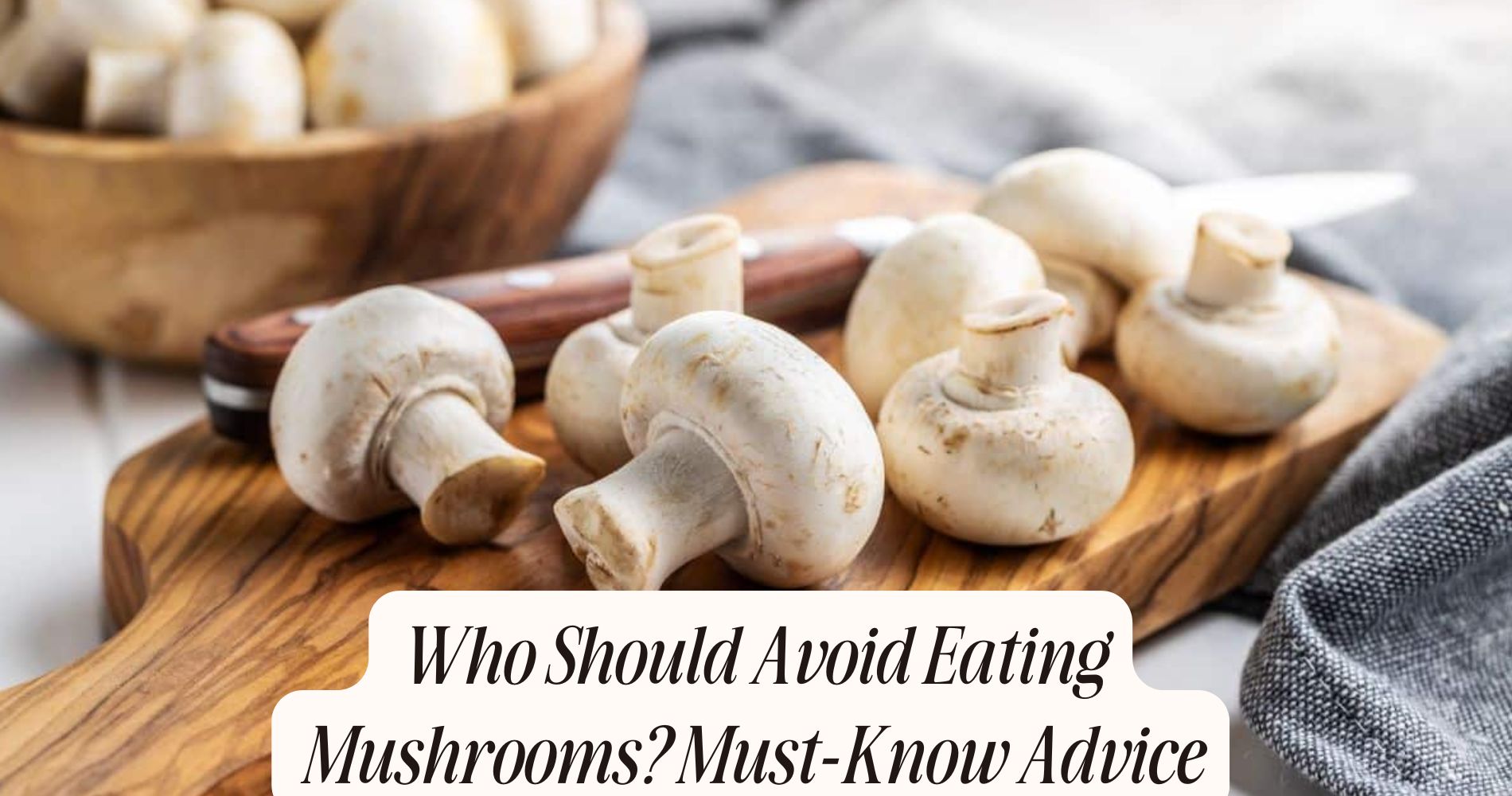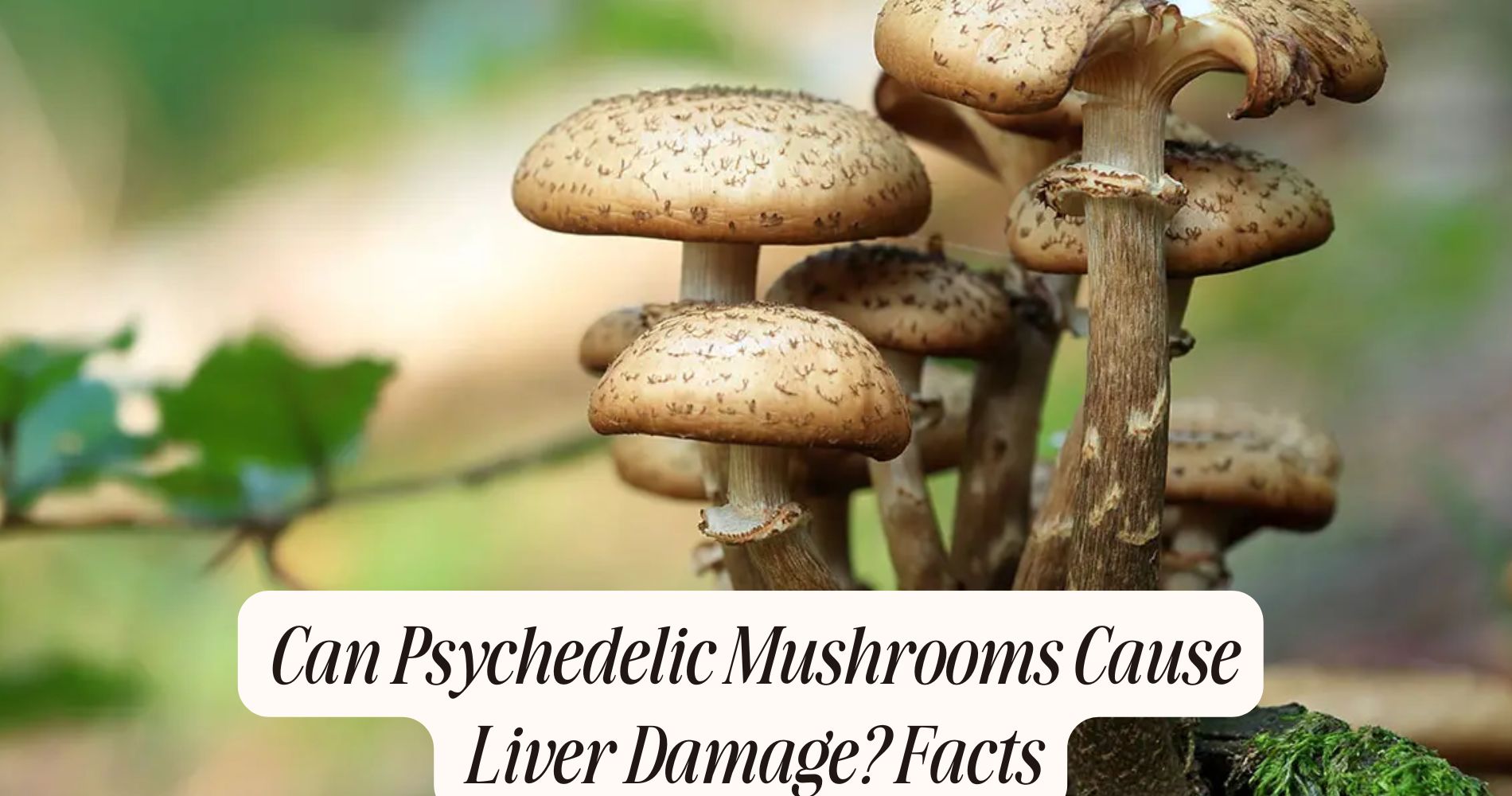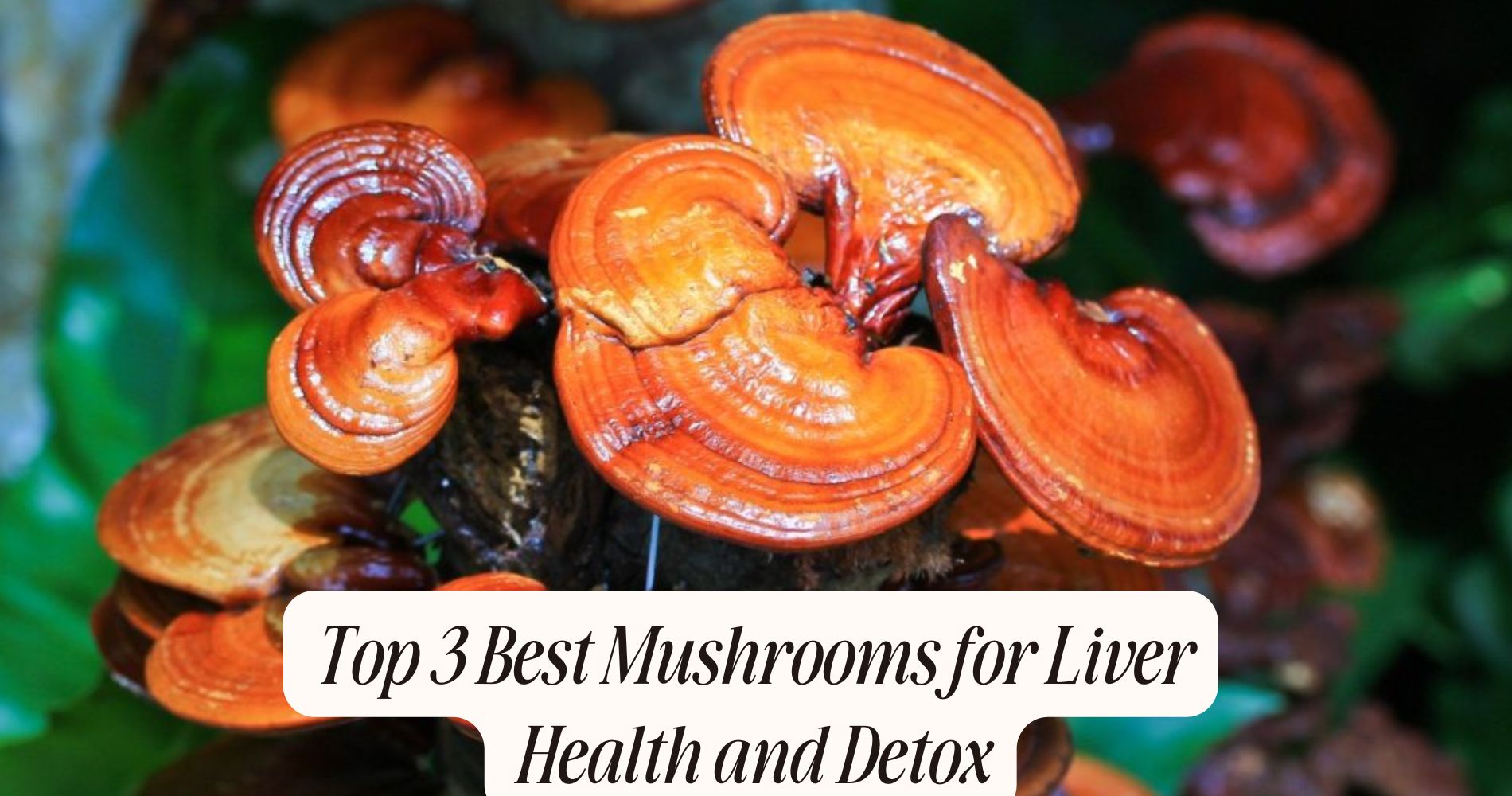
Who Should Avoid Eating Mushrooms? Must-Know Advice
Who should avoid eating mushrooms? You should avoid eating mushrooms if you have allergies, digestive disorders, or are pregnant or breastfeeding. Allergic reactions can cause severe symptoms, while digestive issues may worsen with mushrooms' high fiber content. Pregnant women need to be cautious, as some mushrooms can be toxic. If you're on certain medications, mushrooms might interfere with their effectiveness, especially if they have blood-thinning properties. Additionally, those with liver conditions should consult a healthcare provider, as mushrooms can stress the liver. Understanding these risks can help you make informed choices about your diet and health. There's more to explore on this topic.
Individuals With Mushroom Allergies
If you have a mushroom allergy, it's important to avoid consuming any type of mushroom. This allergy can trigger a range of symptoms, which may include hives, itching, swelling, stomach cramps, nausea, or even difficulty breathing. Recognizing these mushroom allergy symptoms is essential for your safety.
If you suspect you have a mushroom allergy, it's wise to consult an allergist for proper diagnosis. Mushroom allergy testing can help confirm your allergy and identify specific types of mushrooms that may trigger a reaction. These tests often involve skin prick testing or blood tests to detect IgE antibodies, which indicate an allergic response.

Once diagnosed, you should take proactive steps to avoid mushrooms in your diet and be vigilant about reading food labels. Many processed foods may contain mushroom extracts or powder, so it's important to check ingredients carefully.
Inform your friends and family about your allergy, so they can help you avoid accidental exposure. Remember, while most people enjoy mushrooms without issue, your health and safety come first. Always prioritize your well-being by steering clear of mushrooms and communicating your allergy to others.
People With Digestive Disorders
Digestive disorders can make consuming mushrooms problematic for many individuals. If you have conditions like irritable bowel syndrome (IBS), Crohn's disease, or ulcerative colitis, you might want to be cautious. Mushrooms, particularly when not properly prepared, can be tough on your digestive system. Their high fiber content may lead to bloating, gas, or other discomforts.
It's essential to evaluate your mushroom preparation methods. Cooking mushrooms can help break down their tough cell walls, making them easier to digest. Steaming, sautéing, or roasting can enhance digestibility compared to eating them raw.
However, even cooked mushrooms can still pose challenges for some, so it's important to listen to your body. If you notice symptoms worsening after eating mushrooms, it's best to avoid them altogether.
Remember, maintaining good digestive health is critical for your overall well-being. You can explore alternative foods that provide similar textures or flavors without the digestive distress.
Always consult with your healthcare provider or a registered dietitian for personalized advice tailored to your situation. Prioritizing your digestive comfort can lead to a more enjoyable eating experience.
Pregnant and Breastfeeding Women
During pregnancy and breastfeeding, women should be particularly cautious about their diet, including the consumption of mushrooms. While mushrooms can offer nutritional benefits, such as vitamins D and B, minerals, and antioxidants, not all varieties are safe for you or your baby.
Certain mushrooms can be toxic and may lead to foodborne illnesses, which can be especially harmful during this sensitive time. It's vital to stick to safe varieties like button, cremini, and shiitake mushrooms, as these are generally recognized as safe when properly cooked.

However, even these should be consumed in moderation. Consulting with your healthcare provider about the best dietary choices is always a good idea, especially when it comes to introducing new foods into your diet.
If you're unsure about which mushrooms to eat or how to prepare them safely, err on the side of caution and limit your intake. Remember, your health and your baby's well-being are paramount, so prioritize safe, nutritious options during this important phase of life.
Those on Certain Medications
Those taking certain medications should be cautious about eating mushrooms, as some varieties can interact with prescriptions and affect how medications work in your body.
For instance, mushrooms like reishi or shiitake may enhance immune system function, which can be problematic if you're on immunosuppressants. These medications lower your immune response, and combining them with immune-boosting mushrooms could lead to unintended consequences.
Additionally, some mushrooms may influence the metabolism of various drugs. For example, if you're taking blood thinners or anticoagulants, certain mushrooms can increase the risk of bleeding due to their potential blood-thinning properties.
This is where medication interactions come into play, as they can alter how your body processes these medications, leading to either reduced efficacy or heightened side effects.
If you're on medications for diabetes or cholesterol, mushrooms might also interfere with these treatments.
Always consult your healthcare provider before adding mushrooms to your diet if you're on any form of medication. They can provide personalized advice based on your specific medications and health conditions, ensuring your safety and well-being.
Individuals With Liver Conditions
Liver health is essential, and if you have liver conditions, you should be particularly cautious about consuming mushrooms. The liver plays a critical role in processing various substances, including the compounds found in mushrooms. Some mushrooms can contain harmful toxins that could exacerbate existing liver issues.

Mushroom toxicity is a real concern, especially with wild varieties that aren't easily identifiable. Even edible mushrooms can pose risks if consumed in large quantities or when your liver is compromised. For instance, certain compounds in mushrooms can lead to increased stress on your liver, potentially causing further damage.
If you're managing a liver condition, it's advisable to consult with your healthcare provider before adding mushrooms to your diet. They can provide specific guidance tailored to your health status and help you understand the potential risks involved.
A Safe and Delicious Way to Enjoy Mushrooms: Well Gummies SUPER MUSHROOM GUMMIES
If you're cautious about eating mushrooms due to dietary concerns or allergies, Well Gummies SUPER MUSHROOM GUMMIES offer a worry-free alternative. Crafted with ten functional mushrooms, these vegan gummies provide the health benefits of mushrooms—like boosted energy, sharper focus, and enhanced immune support—in a gentle, easy-to-digest form.
Infused with a wild berry flavor that tastes like your favorite candy, these gummies ensure a jitter-free, crash-free experience. Convenient, delicious, and safe—Well Gummies make adding mushrooms to your wellness routine effortless!
Frequently Asked Questions
Can Children Eat Mushrooms Safely?
Yes, children can eat mushrooms safely. Guarantee they're well-cooked, as cooking methods enhance mushroom nutrition and digestibility. Always introduce them gradually and monitor for any allergic reactions or digestive issues. Enjoy their health benefits!
Are There Any Mushroom Types That Are Always Safe?
When considering mushroom safety, always opt for well-known edible varieties like button, cremini, and portobello. These mushrooms are widely recognized as safe, but avoid wild types unless you're extremely knowledgeable about identification.
How Can I Tell if Mushrooms Are Spoiled?
To tell if mushrooms are spoiled, check for spoilage indicators like sliminess, discoloration, or an off smell. Proper mushroom storage in a cool, dry place can help extend their freshness and prevent spoilage.
What Are the Signs of a Mushroom Allergy?
If you suspect a mushroom allergy, watch for symptoms like itching, hives, or gastrointestinal distress after consuming them. Consult an allergist for mushroom allergy testing to confirm your allergies and receive appropriate guidance.
Are There Any Safe Mushroom Supplements?
You can find safe mushroom supplements that offer various benefits, like boosting immunity. Just guarantee you follow recommended mushroom dosages, and consult a healthcare professional if you're unsure about potential interactions with other medications.
Conclusion
In summary, it's essential to be mindful of your health when considering mushrooms in your diet. If you have allergies, digestive disorders, or liver conditions, it's best to steer clear. Pregnant and breastfeeding women, as well as those on specific medications, should also exercise caution. Always consult with your healthcare provider for personalized advice. Staying informed helps you make safe choices that promote your well-being. Prioritize your health and enjoy a balanced diet!




